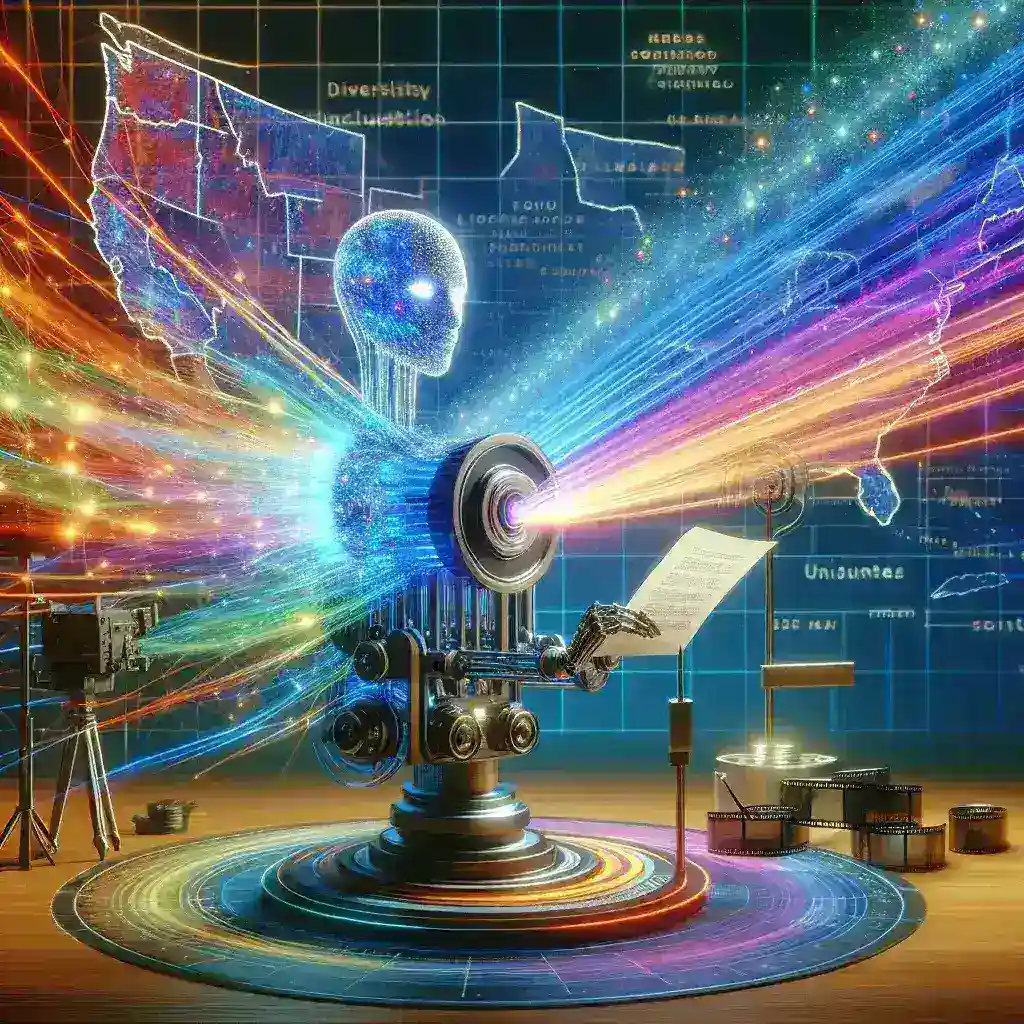Introduction
In today’s rapidly evolving entertainment landscape, the push for diversity and inclusion has never been more pronounced. Netflix, a leader in original content, is at the forefront of this movement, recently announcing its pilot program utilizing AI technology to rewrite scripts for enhanced representation. This innovative approach has sparked conversations about the role of technology in storytelling, the importance of inclusive narratives, and the future of content creation in the streaming age.
The Need for Diversity in Storytelling
Diversity in storytelling is crucial for reflecting the multifaceted nature of society. Research shows that diverse representation not only resonates with audiences but also drives better viewership and engagement. According to a report by the UCLA Hollywood Diversity Report, projects with inclusive casts often outperform those lacking representation, demonstrating the tangible benefits of diverse narratives.
Historical Context
Historically, Hollywood has struggled with representation, often sidelining marginalized voices. The push for diversity gained momentum in the 21st century, particularly with the rise of social media, empowering audiences to voice their demands for inclusivity. Initiatives like the #OscarsSoWhite movement highlighted the need for change, prompting studios, including Netflix, to reassess their approaches to storytelling.
How AI Is Transforming Script Development
Netflix’s pilot program harnesses the power of artificial intelligence to analyze scripts and suggest revisions that promote diversity. By employing machine learning algorithms, the AI can identify patterns in language, character development, and narrative arcs that may perpetuate stereotypes or exclude certain groups. This technology allows creators to rethink their scripts, ensuring that a broader range of voices is represented.
Benefits of AI in Script Rewriting
- Enhanced Representation: AI can help highlight underrepresented characters and narratives, bringing new perspectives to the forefront.
- Efficiency: Speeding up the rewriting process allows for more iterations and greater creative exploration.
- Data-Driven Insights: AI provides valuable analytics about audience preferences, helping creators tailor stories that resonate with diverse viewers.
Challenges and Ethical Considerations
Despite its potential, the use of AI in script rewriting raises several challenges and ethical concerns. One major issue is the possibility of over-reliance on technology, which could stifle human creativity. Moreover, there’s a risk that AI-generated suggestions may lack the cultural nuance necessary for authentic representation.
Human-Centric Storytelling
While AI can assist in the scriptwriting process, the human touch remains irreplaceable. Diverse teams of writers, directors, and producers bring unique perspectives that technology cannot replicate. Therefore, it is essential for Netflix and other studios to strike a balance between leveraging AI and valuing human input.
Real-World Examples of Diversity Initiatives
Several successful projects have emerged from Netflix’s commitment to diversity and inclusion:
- “Orange Is the New Black”: This series broke new ground with its diverse cast, exploring themes of race, gender, and sexuality.
- “The Half of It”: A coming-of-age story that features a queer Asian-American protagonist, showcasing underrepresented narratives.
- “Bridgerton”: With its color-blind casting, this period drama reimagines traditional narratives, embracing diversity in historical storytelling.
The Future of AI in Entertainment
As Netflix continues to pilot AI script rewriting, the future of entertainment looks promising. The ability to create more inclusive stories can lead to a richer cultural tapestry and foster greater empathy among audiences. Furthermore, AI could evolve to better understand complex human emotions, enhancing the storytelling experience.
Predictions for the Next Decade
In the next decade, we can expect:
- Increased Automation: AI will play a larger role in various aspects of production, from scripting to post-production.
- Diverse Voices Amplified: More creators from various backgrounds will gain opportunities, leading to a broader range of stories.
- Collaborative Efforts: Studios will increasingly collaborate with cultural consultants to ensure authenticity in representation.
Conclusion
Netflix’s initiative to pilot AI script rewriting for diversity and inclusion is a groundbreaking step towards reshaping the entertainment industry. By embracing technology while honoring human creativity, the streaming giant aims to elevate diverse voices and create narratives that resonate with audiences worldwide. As this pilot program unfolds, it will be fascinating to observe its implications not only for Netflix but for the broader landscape of storytelling in the digital age.
